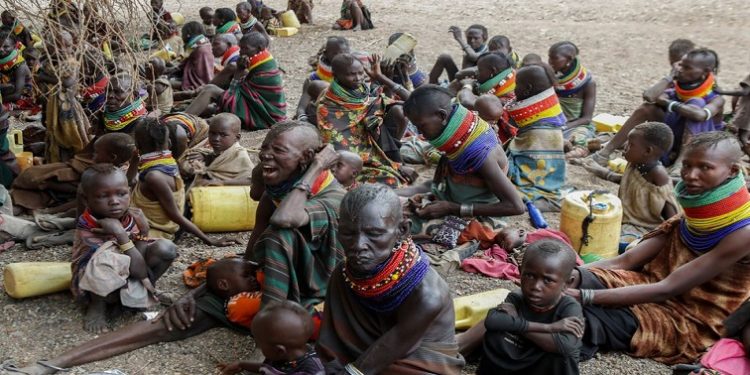Oxfam says countries meeting at the United Nations General Assembly (UNGA) in the US must act swiftly to help save lives of starving populations in the Horn of Africa region and other parts of the continent
It argues that these effects of climate-related risks have hit home.
Climate change in the Horn of Africa and Sahel regions is to blame for extreme weather events that have seen the number of hungry people increase. The development charity in a new report indicates that in at least 10 countries that they examined and described as the world’s worst climate hotspots, extreme hunger has more than doubled in the last six ten years.
We must speak out, our voices must be strong, the world must not act like they don’t know, climate justice is a huge demand by Africa facing disasters it hasn’t contributed to. The Global North must fix the mess and pay up. https://t.co/Ye8O0ocReC
— Oxfam in Kenya (@oxfaminKE) September 20, 2022
OXFAM calls for UNGA members to address climate change to save lives of starving populations:
The 10 climate hotspots according to Oxfam are Somalia, Haiti, Djibouti, Kenya, Niger, Afghanistan, Guatemala, Madagascar, Burkina Faso, and Zimbabwe.
The countries have been repeatedly battered by extreme weather over the last two decades.
The Horn of Africa region, where at least three of these hotspots are located, is facing its worst drought in 40 years, with parts of Somalia expected to face a famine later this year.
Oxfam warns that the region is staring at a full-scale humanitarian catastrophe with massive crop failure and livestock deaths.
“This drought comes on the back of the locust invasion in 2021, COVID-19 pandemic invasion for example,” explains Kitui.
Oxfam argues the affected countries have little to blame for the rising temperatures. The rich nations, the global charity says must pay for their actions. This they argue must top the agenda at the ongoing United Nations General Assembly in New York.
Oxfam’s report on worsening Africa food crisis: Peter Kamalingin
The UN estimates the number of people affected by the drought in Ethiopia, Kenya and Somalia is 36.1 million but with the donor community’s focus stuck in the Ukraine -Russia crisis, there are fears that help may be too little too late.






